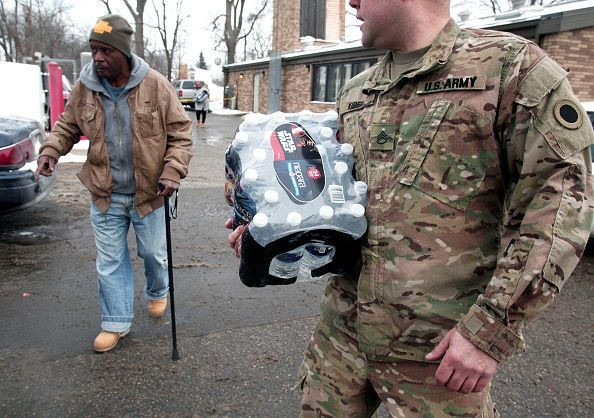Legionnaires' Disease Spikes In Flint, Michigan, Area Dealing With Water Contamination Crisis

The Michigan county already reeling from lead-contaminated drinking water in the city of Flint has seen a spike of Legionnaires' disease resulting in 10 deaths that may or may not be related to the water crisis, officials said on Wednesday.
Genesee County, which includes Flint, had 87 cases of Legionnaires' from June 2014 to November 2015. State officials told a news conference they could not conclude that the increase was due to a switch in the source of Flint's water.
"That just adds to the disaster we already are facing with respect to elevated lead levels," Governor Rick Snyder said.
About half the cases were connected to Flint water and half were not, according to Nick Lyon, director of the Michigan Department of Health and Human Services.
Legionnaires is a type of pneumonia caused by inhaling mist infected with the bacteria Legionella. The mist may come from air-conditioning units for large buildings, hot tubs or showers.
Genesee County and Michigan health departments are investigating the increase as are the U.S. Centers for Disease Control and Prevention and the U.S. Environmental Protection Agency, Snyder said.
Snyder called in Michigan National Guard troops, who arrived on Wednesday to help distribute bottled water, water filters, testing kits and other supplies to Flint residents.
The governor, who has been accused of waiting too long to intervene in the crisis, also requested support from the Federal Emergency Management Agency, which has appointed a disaster recovery coordinator to help Michigan.
Financially strapped Flint was under the control of a state-appointed emergency manager when it switched its source of tap water to the nearby Flint River in April 2014 from Detroit's water system 60 miles (100 km) to the southeast to save money.
Flint returned to the Detroit water system in October after tests found some children had elevated levels of lead in their blood and lead was found in higher-than-acceptable levels in the water. The city said in December lead levels remained well above acceptable levels.
Snyder has apologized for the state's mishandling of the situation and declared a state of emergency in Genesee County to bring in additional state resources.
Last week, the U.S. Attorney's Office in Detroit said it was investigating the lead contamination of Flint's water. Flint residents have filed a federal lawsuit accusing the city and state of endangering their health.
© Copyright Thomson Reuters 2024. All rights reserved.





















